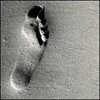

For undergraduate courses of beginning graduate courses in Introductory Cognitive Psychology. Using a unique question-and-answer format, this text comprehensively addresses many of the overarching questions that confront and motivate today's cognitive scientists. When Daniel Willingham first approached the prospect of creating his own cognitive psychology text, he did so with the knowledge that his years of teaching experience had brought him: while many texts were relatively adequate in coverage, his students never liked them. Usually underexposed to social sciences in pre-college courses, he found his students often struggled with understanding how and why cognitive psychologists approach the problems that they do. Here, by using a unique question-and-answer format, he is able to start with questions frequently asked by students, relate those to questions cognitive scientists ask in their own research, present clear answers, and frame those answers in an interesting, lively, and comprehensive coverage of the core material. Through this accessible narrative style, Willingham shows the logical connections between each section and, by means of several new pedagogical features, encourages students to apply what they have learned in their daily lives. How do you address neuroscience in your cognitive psychology classes?Integration of neuroscience material into the text: Rather than being set off in boxed sections outside of the main narrative, neuroscience material is integrated throughout the text. How do you address assessment and student learning in your classes? NEW! Enhanced pedagogical features:Brief previews of each section pose the broad questions and provide the broad answers contained in the section. (examples, pgs. 260, 354, 443)Key terms are identified by bold-face type, and are defined immediately thereafter. They are also collected in a glossary. (examples, pgs. 151, 227, 325)"Stand-on-one-foot" Questions. Ask the student to summarize what they have learned in the section they have just read. The name comes from the Talmudic story of the heretic who went to great the sages, asking each to summarize all of the Torah in the time they could stand on one foot. (He finally found a willing sage in Hillel who quoted from Leviticus, "What is hateful to you, do not to others.") Questions will prompt students to show they understood the section's major points. (examples, pgs. 48, 318, 469)"Questions that require two feet." Each section also includes in-depth critical thinking questions. Students will need to apply what they have learned to new situations or go beyond the presented material. Answers are provided at the end of the text. (examples, pgs. 61, 141, 260)Increased Art: 20% increase in figures and photos making the subject matter even more engaging to students.How do you address Research Methods in your cognitive psychology classes? Additional chapter on Research Methods: Chapter 2, "Methods of Cognitive Psychology." Chapter 1 covers the history of cognitive psychology . The newly added Chapter 2 addresses how it is possible to do scientific studies when you can't see or measure hypothetical representations directly. The first half of the chapter describes how to conduct behavioral experiments. The second half of the chapter addresses the usefulness of neuroscientific data.How do you address Language in your classes? Two chapters on Language: In this third edition, Chapter 13 covers Language Structure with Chapter 14 detailing Language Processing.Do you require additional readings for your classes?Suggested Reading from the Current Directions in Cognitive Science: Available to be packaged with Cognition: The Thinking Animal, the Current Directions reader provides students with additional cognitive research to explore.What kinds of supplemental materials do you use? Extensive supplements available for Cognition 3.e, including: PowerPoint Slides. Prepared by Sameer Bawa, University of Virginia includes selected art, from the text available in a chapter-by-chapter lecture format. These slides can be accessed through the Instructor's Resource Center on www.prenhall.comInstructor's Manual with Tests. Prepared by John Philbeck, George Washington University includes chapter outlines, suggestions and demonstrations, classroom activities, research and discussion questions, and more. The testing portion of the manual has approximately 65 questions per chapter. TestGen Software. Computerized version of the test questions, which operates on both PC and MAC systems. Research Navigator. An online resource that features three exclusive databases full of source material, including: EBSCO's ContentSelect Academic Journal Database, organized by subject. Each subject contains 50 to 100 of the leading academic journals by keyword, topic, or multiple topics. Articles include abstract and citation information and can be cut, pasted, emailed, or saved for later use. The New York Times Search-by-Subject One Year Archive, organized by subject and searchable by keyword or multiple keywords. Instructors and students can view the full text of the article. Link Library, organized by subject, offers editorially selected best of the Web sites. Link Libraries are continually scanned and kept up to date, providing the most relevant and accurate links for research assignments.
więcej
Informacje dodatkowe o Cognition:
Wydawnictwo: angielskie
Data wydania: b.d
Kategoria: Socjologia, filozofia
ISBN:
Liczba stron: 0
Kup książkę Cognition
Sprawdzam ceny dla ciebie ...
Cytaty z książki
REKLAMA
















Chcę przeczytać,